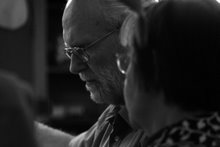POSTED: 1:22 p.m. EDT, March 21, 2007
Story Highlights
• NEW: Gore: Get China, India on board by demonstrating “real leadership”
• NEW: Barton: Cutting carbon dioxide provides “little benefit at a huge cost”
• Hastert: “Recommendations are more regulations and more taxation”
• Ex-VP asks Congress to back 90 percent cut in global warming gases
WASHINGTON (AP) -- Al Gore, a Democratic favorite for the presidency despite pronouncements that he’s not running, spoke out on his signature issue Wednesday, warning of a “true planetary emergency” if Congress fails to act on global warming.
In a return he described as emotional, Gore testified before House panels that it is not too late to deal with climate change “and we have everything we need to get started.” By turns folksy and prescriptive, he urged the Democratic-controlled Congress to adopt an immediate freeze on greenhouse gases blamed for global warming.
Gore’s return to Congress marked the first time he had been in the Capitol since January 2001 when he was the defeated Democratic nominee still presiding over the Senate in his role as vice president. (Watch Gore compare the planet to a baby with a fever Video)
The former vice president, who 20 years ago held the first hearings in Congress on global warming, appeared before a joint hearing by two House committees. Later in the day, he was to testify before a Senate committee that includes the current Democratic front-runner for the nomination -- Hillary Rodham Clinton. Another member is its recent past chairman, Sen. James Inhofe, R-Oklahoma, who calls global warming the biggest hoax ever perpetuated on Americans.
Several public opinion polls show Gore among the top three in the presidential race, although he has said he has no plans to seek the presidency again. In 2000, he won the popular vote but lost to George W. Bush when the Supreme Court ruled for the Republican in the disputed election. (Interactive: View one poll’s results)
Polls consistently place Gore, the non-candidate, third behind Clinton and Illinois Sen. Barack Obama -- ahead of John Edwards and other declared candidates -- and indicate that much of his support comes from Democrats who would otherwise back the New York senator.
Gore advised lawmakers to cut carbon dioxide and other warming gases 90 percent by 2050 to avert a crisis. Doing that, he said, will require a ban on any new coal-burning power plants -- a major source of industrial carbon dioxide -- that lack state-of-the-art controls to capture the gases.
He said he foresees a revolution in small-scale electricity producers for replacing coal, likening the development to what the Internet has done for the exchange of information. He also advocated tougher fuel-economy standards for cars and trucks.
“There is a sense of hope in this country that this United States Congress will rise to the occasion and present meaningful solutions to this crisis,” he said. “Our world faces a true planetary emergency. I know the phrase sounds shrill, and I know it’s a challenge to the moral imagination.”
Gore gained international recognition with his Oscar-winning documentary, “An Inconvenient Truth,” as perhaps the leading spokesman on dealing with global warming. (Read more about Gore’s Oscar-night speech)
‘Welcome back, welcome home’
A former congressman and senator from Tennessee, Gore received a friendly reception from Democrats in Congress. As he spoke, his wife, Tipper, sat behind him, listening intently and laughing occasionally at lighter-hearted exchanges.
“Welcome back, welcome home,” said Rep. John Dingell, D-Michigan, chairman of the Energy and Commerce Committee.
But several Republicans sharply questioned Gore’s recommendations.
Rep. Joe Barton, R-Texas, a former chairman of the House energy committee, questioned scientific evidence from Gore’s popular film and said cutting carbon dioxide emissions would “provide little benefit at a huge cost,” particularly to major coal-producing and coal-burning states.
“A lot of those recommendations are more regulations and more taxation,” said former House Speaker Dennis Hastert, R-Illinois, though he added that he agrees with Gore that the scientific debate on climate change is over. “I think we can find answers to use the coal energy, to use the natural gas we have.”
Gore said the climate issue should not be a partisan or political issue. He said he saw a limited role for nuclear power, which the Bush administration has promoted, because the plants are expensive to build and “only come in one size: extra large.”
He rejected the contention by opponents of quick action on global warming that the United States should only impose mandatory controls on greenhouse gases if China, India and other rapidly developing nations agree to do the same.
“The best way and the only way to get China and India on board is for the U.S. to demonstrate real leadership,” Gore said. “As the world’s largest economy and the greatest superpower, we are uniquely situated to tackle a problem of this magnitude,” he said.
Gore favors a “cap-and-trade” program for the U.S. economy, not just specific sectors such as electricity or manufacturing, which would set an overall limit on warming emissions but allow industry to meet the target by trading pollution allowances.
Congress has nearly a dozen bills before it that call for reductions in carbon dioxide and other greenhouse gases.
Copyright 2007 The Associated Press. All rights reserved.This material may not be published, broadcast, rewritten, or redistributed.

No comments:
Post a Comment